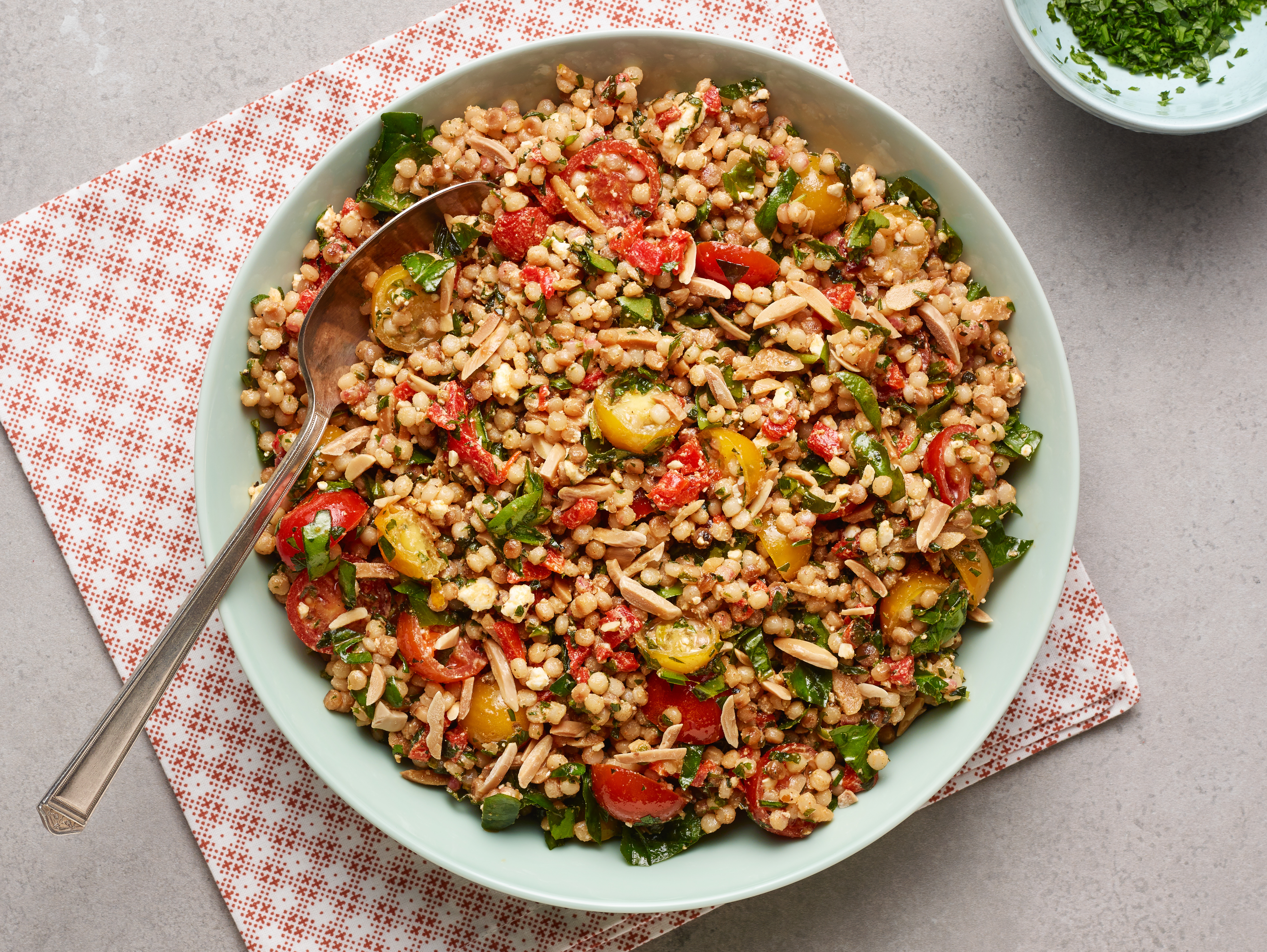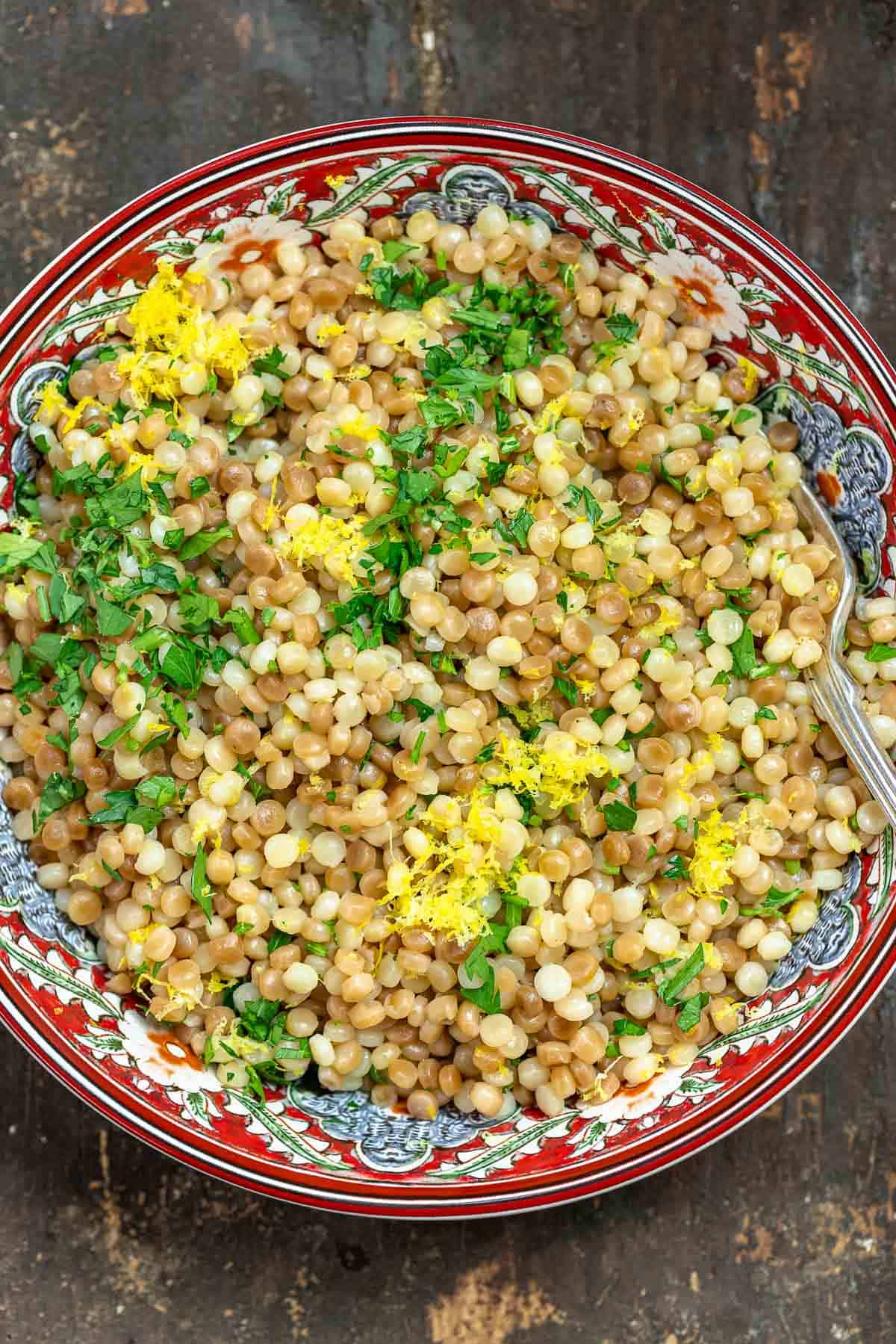Learn how to cook pearl couscous like a pro with my no-fail recipe! Pearled couscous comes together in only 15 minutes! Consider this the easy, tasty side dish of your dreams.
Pearl couscous is a staple in Middle Eastern and Mediterranean cuisine. Depending upon where you are in the world, you might recognize this particular type of couscous as Maftoul, Ptitim, Israeli Couscous, or Pearl Couscous.
It’s larger in size (similar to a pearl) than the much smaller Moroccan couscous, nutty, and a bit chewy but just as versatile. Keep it simple as I do in this recipe with just a little lemon, olive oil, and parsley for a quick and easy weeknight side dish that everyone will love or go big and make it main.
Use up those end of season vegetables and load the couscous up with tomatoes, cucumbers, herbs, and spices to make a robust Mediterranean salad or as the weather cools enjoy it warm in this Herbed Couscous and Roasted Cauliflower recipe.
Think of pearled couscous as a jumping off point for whatever you have in the fridge. All you need is 15 minutes and a little creativity.

How to Cook Pearl Couscous (Israeli Couscous)

Tender, chewy, and slightly nutty, pearl couscous (Israeli couscous) is an irresistible side dish that comes together in just a few minutes, with very little effort. Simply toast it in some good extra virgin olive oil and boil it in water or broth on the stove until tender. It’s as easy as that! You can enjoy pearled couscous at room temperature in a salad, or hot, tossed with some pesto or other sauces of your choice.
Prep: 2min
Yield: 6
Serving Size: 1 serving
Nutrition Facts: calories 108.1 kcal, Carbohydrate 22.2 g, Protein 3.7 g, Fat 0.2 g, Saturated Fat 0.04 g, Sodium 7.2 mg, Fiber 1.5 g, Sugar 0.02 g, unSaturated Fat 0.13 g, servingSize 1 serving
Ingredients:
- Extra virgin olive oil
- 1 cup pearl couscous
- 1 ½ cups water
- Kosher salt
- ¼ cup chopped fresh parsley, (optional)
- Zest of 1 lemon, (optional)
Instruction:
- Toast the couscous: In a medium saucepan, heat about 2 tablespoons extra virgin olive oil over medium-high until just shimmering. Add the pearl couscous and toss around to toast (the couscous pearls should turn a nice golden brown).
- Boil the couscous: Boil 1 ½ cups of water and add it to the toasted pearl couscous. Season with kosher salt. Bring to a boil, then turn the heat to low. Cover and cook for about 14 minutes or until the pearl couscous is tender. Remove from the heat.
- Season and enjoy! Taste and adjust salt to your liking. To finish, add the parsley and lemon zest (optional), toss and serve.
Israeli Couscous Recipe | Kin Community
FAQ
Is Israeli couscous good on a diet?
What is the difference between traditional and Israeli couscous?
What is the difference between pearl couscous and Israeli couscous?
Is Israeli couscous healthier than regular couscous?
What is the ratio of Israeli couscous to water?
